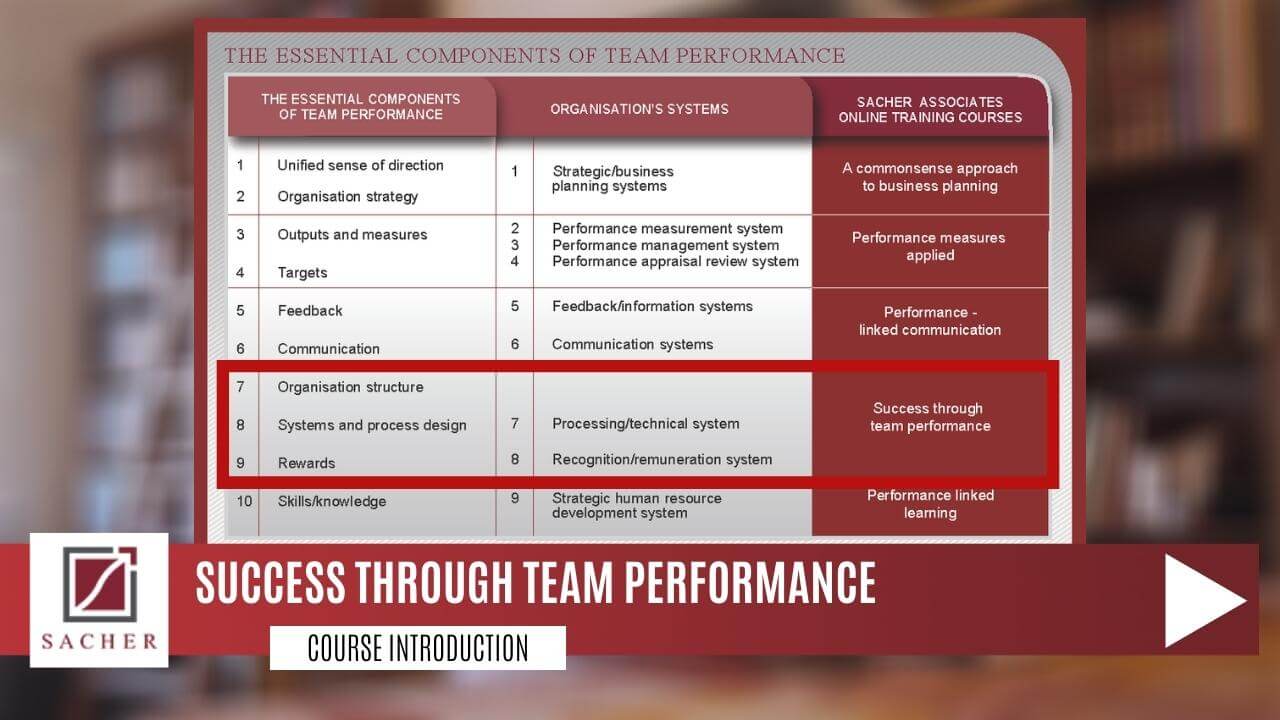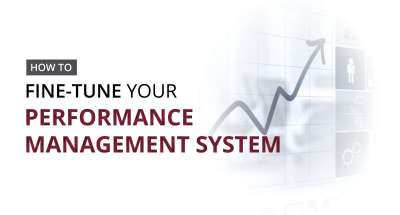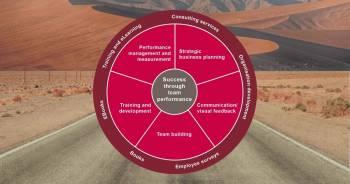TEAM PERFORMANCE
Human potential is limitless.
Sacher Associates can transform your organisation by implementing The Essential Components of Team Performance. Book an obligation free clarity call now to find out how.
Monty is passionate about business improvement using teams. Through his workshops he ensures there is a consistent and unified sense of direction at all a level within the organisation. He also ensures the team goals are aligned both horizontally and vertically. Monty is unique in his ability to work at all levels of the organisation, but some of his best results are at the grass root levels where the actual work gets done and where the biggest productivity gains can often be found. Monty is a change agent and his systemic approach ensures changes are embedded in the organisation and have long lasting and positive effects.
John Hall
Managing Director, Ricoh
Human potential is limitless. If one person, acting alone, cannot deliver a product or service, a team must be formed to get the job done. That is the basis of every organisation, and the reason why all organisations depend on teamwork. Teamwork can occur in varying degrees and, because we are dealing with human beings, the potential to improve teamwork is limitless.
All organisational teams utilise inputs such as money, material, machinery, information and, of course, people to produce their outputs or services. All of those inputs, with the exception of people, are available to all competitors in a single market. What differentiates the more successful organisations is the quality of the people who belong to those organisations. It is the people and how they work together in teams to process inputs into value-added outputs or services that is the key to sustained success.
In the absence of major technological, financial or organisational restructuring, the most direct route to better organisational performance is for teams to continuously improve the delivery of value-added outputs or services to customers. More and more organisations are recognising the competitive advantages gained from playing as a team – especially one that includes the people in the front-line adding value. This is significant because the search for competitive advantage is becoming even more intense.
Organisations throughout the world are undergoing extraordinary change. Advances in information technology, the changing labour force, and global competition are affecting the way both small businesses and large corporations operate. And the changes are not restricted to the private sector. The move towards privatisation means more governments are adopting practices previously the preserve of private industry. Contracting-out services and the formation of new business alliances must be managed effectively.
The globalisation of world markets is facilitated by the ease with which buyers and sellers can now find each other. Never before has the communication technology been in place to aid business transactions on such a scale, and this technology is set to become even more sophisticated in the future. Customer demands will be hampered less and less by the absence of information about the range, quality, cost, quantity and timeliness of the goods that can be provided by prospective suppliers. Customer expectations have been rising proportionately with the growing capacity of suppliers to deliver the right amount of quality goods and services at the right cost, on time, every time. So the competition is intensifying for customers' hearts, loyalty and dollars.
Simultaneously, employee expectations have been rising. More and more, they are demanding quality of working life, greater meaning in their work, autonomy, and a small organisational team to which they can belong. This organisational team would serve as the organisational equivalent of the family unit. The most competitive organisations have incorporated the best aspects of home life into the workplace.
In the new millennium, organisations of all sizes will be faced with a stark choice – adapt or go out of business. Those organisations that can't accommodate the competitive pressures that will be placed on them by all stakeholders, but especially customers and employees, will be shut down. On the other hand, those organisations that can create winning cultures, that can provide what we describe as total stakeholder satisfaction, will survive and thrive.
Success means different things to different people – job satisfaction, job security, more money or an ideal life style. Whatever success means to you or your organisation, it can only be achieved through team performance.
We can help you continuously improve team performance to provide total stakeholder satisfaction:
- How to implement a unified sense of direction.
- How to clarify roles and deliver total stakeholder satisfaction.
- How to develop outputs, measures and targets.
- How to deliver performance-linked communication.
- How to implement team communication processes.
- How to deliver performance-linked learning.
- How to implement team-based organisation structures.
- How to reward team performance.
- How to implement the basic components of team performance.
Our Clients:


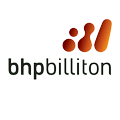

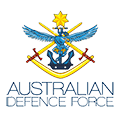


Why choose Us?
We collaborate with our clients to achieve sustainable and measurable performance improvements through your people. We facilitate a work environment or culture that enables continuous improvement and sustained excellence.
We partner with you to achieve productivity improvements through teams, at all levels. Our role is not to run courses or perform other activities that your internal people could do better. Rather, we work with you to achieve the highest levels of organizational effectiveness, resulting in sustained bottom-line improvements.
We are experienced, implementation specialists.
Our Clients:







OUR LATEST BLOGS
-
Read more...
 How to fine-tune your performance management system
How to fine-tune your performance management system
Do you struggle to control the delivery of measurable results by the people that you lead? Wouldn't it be great if they stopped micromanaging each other, and were more empowered and engaged, and less apathetic? What…
-
Read more...
 What do I do on Monday morning?
What do I do on Monday morning?
What do I do on Monday morning? This phrase has stayed with me for more than 20 years.
-
Read more...
 Workplace Wars. How to win.
Workplace Wars. How to win.
No problem in this world or beyond can withstand human beings, blessed with limitless potential, working effectively in organizations. If people are productive at work, they are happier not just at work, but with their families…
-
Read more...
 How to implement a unified sense of direction: The 10 Musts.
How to implement a unified sense of direction: The 10 Musts.
What is a unified sense of direction and how do you develop one? The first essential component of team performance is a unified sense of direction. A unified sense of direction can best be summed up…
-
Read more...
 The five pathways to Organizational Effectiveness
The five pathways to Organizational Effectiveness
It is very easy to lose your way on the road to organizational effectiveness. It can be dispiriting to work in an environment that lacks clear direction, coordination, and role clarity.
-
Read more...
 The Future of Organization Effectiveness
The Future of Organization Effectiveness
Do your team and organization have a unified sense of direction, (the unique contribution of the leader), a strategic plan effectively being implemented, a bulletproof measurement and performance management system that provides role clarity and accountability?


